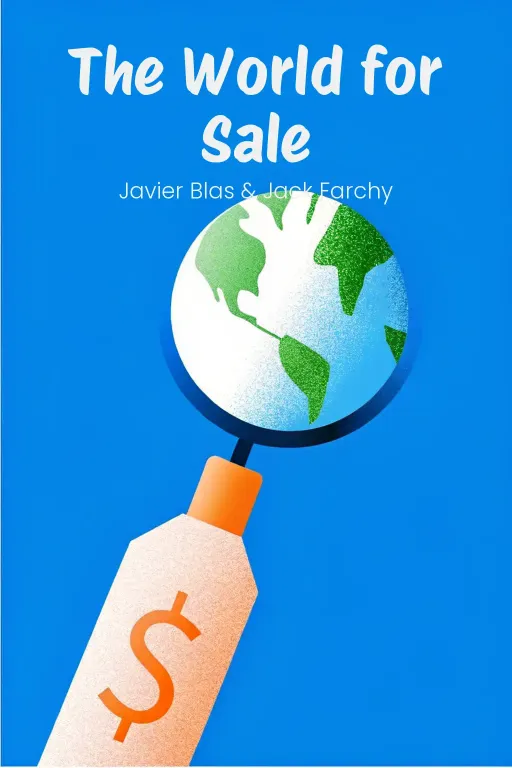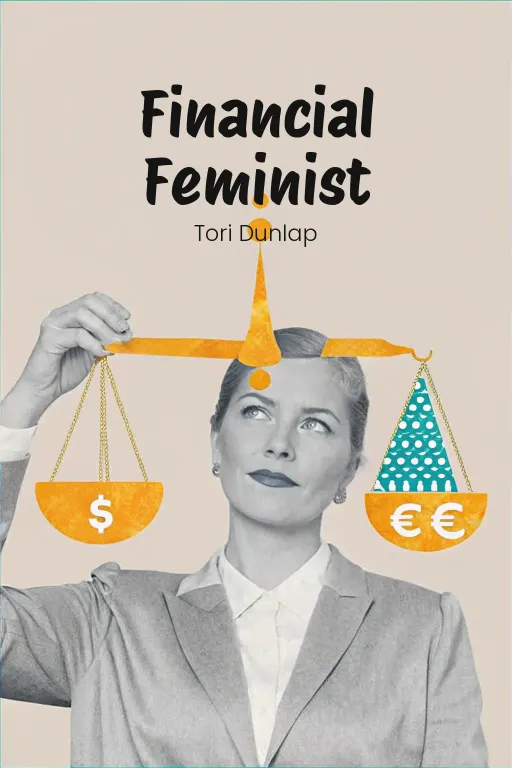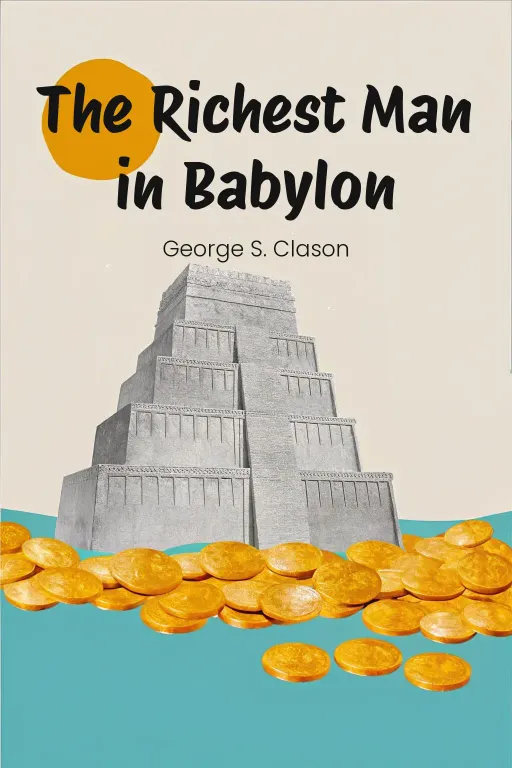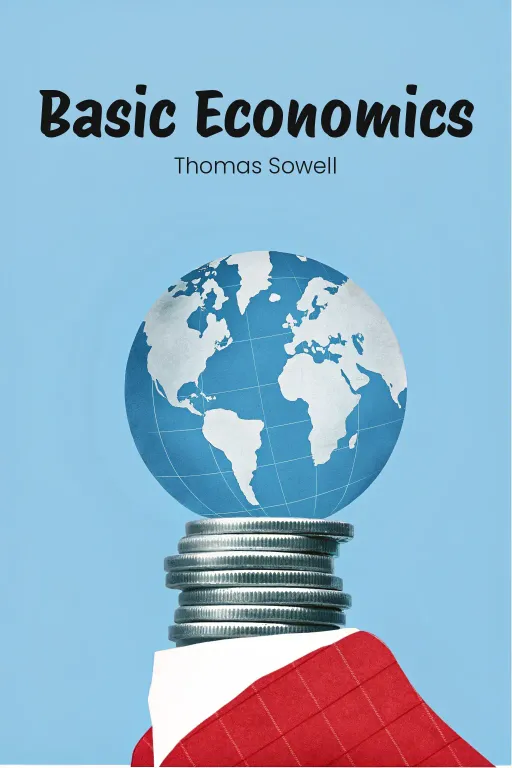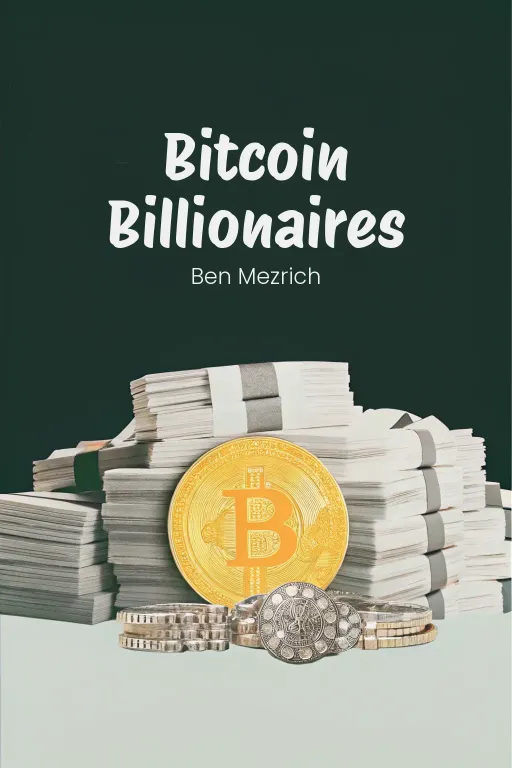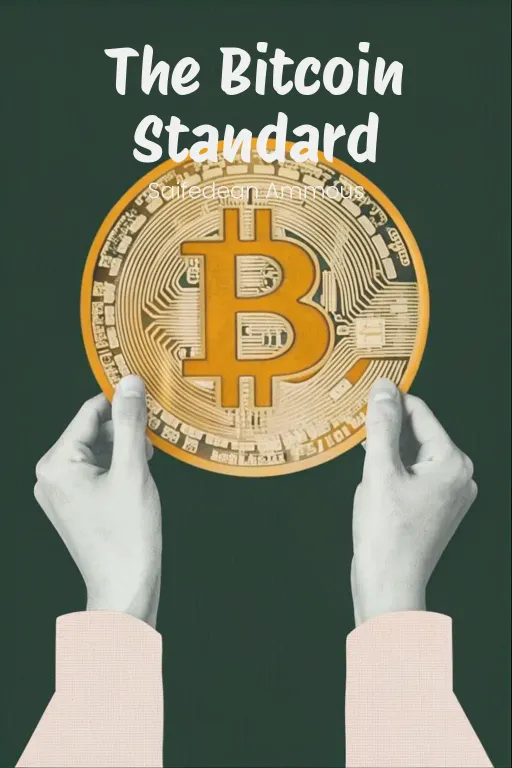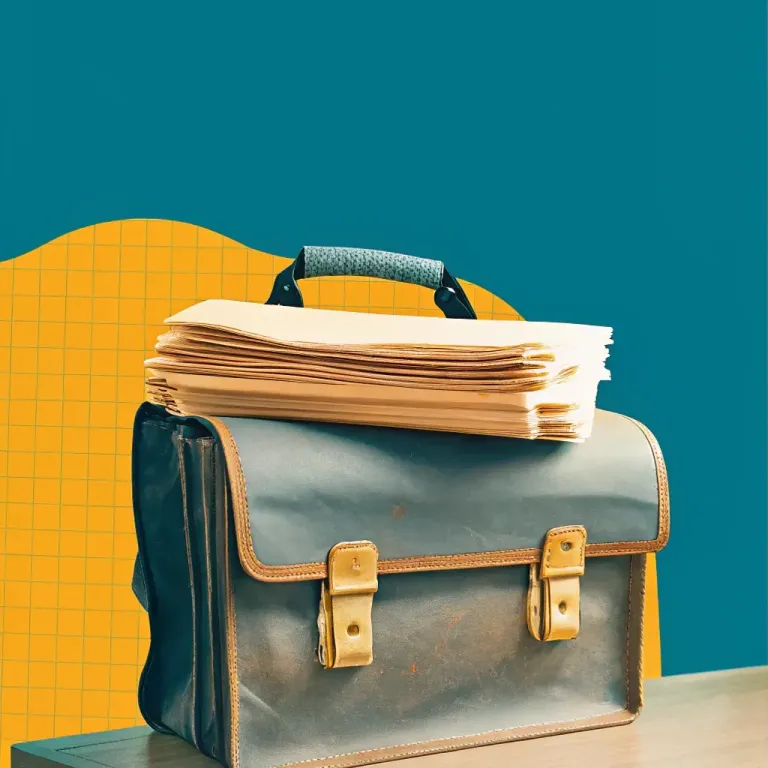
Wall Street Fails: Lessons You Can Use Today
Podcast by Let's Talk Money with Sophia and Daniel
Twelve Classic Tales from the World of Wall Street
Wall Street Fails: Lessons You Can Use Today
Part 1
Daniel: Today, we're plunging headfirst into financial history, corporate dramas, and the invaluable lessons they offer our modern economy. If the mechanics behind stock market crashes, spectacular corporate implosions, or even our complex tax systems have ever piqued your interest, you're definitely in the right spot. Sophia: Exactly! And let's face it, these aren't just dusty history lessons. They're “really” stories about human ambition, maybe a bit too much pride, and the occasional epic corporate fail. It’s like Shakespeare, but with more stock tickers and, you know, financial ruin. Daniel: Couldn't have said it better, Sophia. We're actually inspired by the insightful book, Business Adventures, which looks at key moments from financial and corporate history. It ties together economic ups and downs, the way companies are run, the complexities of taxation, and even the legal battles that have defined what companies can and can't do. From the wild stock market crash of '62 to the cautionary tale of the Edsel car, these events show us the human mistakes and faulty systems that were “really” at play. Sophia: Which, let’s be honest, continue to repeat themselves today. That insider trading scandal at Texas Gulf Sulphur back in the 60s? Swap the telegrams for a group chat and boom – you’ve got today’s headlines. Daniel: Precisely. So, here’s the plan: First, we’ll unpack the psychology of market crashes – what fuels that panic? Then, we’ll dig into corporate missteps, like the Edsel story, to understand those ethical and strategic errors. Finally, we’ll find our way through the tax and intellectual property maze, revealing how rules designed to protect us often end up trapping us instead. Sophia: Basically, we’ve got storms, shipwrecks, and twisty mazes to explore. All in the name of… financial adventure.
Historical Financial Crises and Market Psychology
Part 2
Daniel: So, continuing our discussion, let's talk about the 1962 stock market crash. It wasn't as devastating as '29, but it's still interesting, especially since it happened during a period of supposed economic stability. The Dow Jones dropped almost 35 points in a single day – doesn't sound like much compared to today's numbers, but back then, it was a big deal. Sophia: Right, and wasn't this a classic example of how markets can defy expectations? The economy was doing pretty well in the early '60s, with Kennedy's economic policies and all. And yet, panic still took over. So, Daniel, what caused this “Little Crash”? Daniel: Good question. It wasn't one big thing like a bank run or a mortgage crisis. It was more like a chain reaction of mistrust and changing perceptions. Investors were wary of Kennedy's economic moves, especially after his public clash with the steel industry over price increases. Since the stock market relies on perception as much as numbers, his hands-on approach to regulating businesses made Wall Street nervous. Add some speculative trading to the mix, and that created the perfect environment for a sudden panic. Sophia: So, it sounds like fear and policy concerns were a bad combination, like poorly matched roommates. Let’s focus on the psychology involved for a moment. You mentioned trust collapsing – isn't that the basis of the market itself? The belief that someone will be there to buy tomorrow, right? Daniel: Exactly. Trust among traders is what holds everything together. When that trust breaks down, fear takes over, and fear spreads quickly. On May 28th, as the Dow started to drop, trading volumes went through the roof – almost 9.4 million shares changed hands. It was a massive sell-off, driven in part by herd behavior. Investors weren't acting based on rational analysis but just following the crowd's emotional reaction. Sophia: We've seen it before – 1929, the dot-com bubble, the Great Recession. It's always the same story: people rushing to sell because everyone else is. Herd behavior is like a domino effect in finance. And the media doesn't help, does it? Back then, the headlines were screaming about the crash, right? Daniel: Absolutely! The media amplifies fear so effectively. News bulletins interrupted regular TV shows, showing scenes of chaotic trading floors. For ordinary investors, what might have seemed like a manageable situation turned into a crisis they couldn't ignore. Many people reacted emotionally, which made things worse, you know? It's like a snowball rolling downhill, picking up more and more snow. Sophia: Which always makes me wonder: why panic sell? If you’d just waited a day, the Dow bounced back almost 27 points! But I guess that's market psychology for you – fear reacts much faster than logic. Daniel: Exactly. And it isn't just about fearing financial loss – it's the fear of uncertainty. Traders couldn't see where the bottom was, and when faced with that unknown, many chose to cut their losses. Of course, experienced professionals had their own ways of dealing with the chaos. There's a story about brokers on the exchange floor joking around during the crash – it sounds strange, but humor and camaraderie became essential coping mechanisms in that intense environment. Sophia: It sounds like gallows humor almost, doesn't it? Traders laughing as fortunes disappear? Sounds Shakespearean – like joking on a sinking ship. Daniel: It does, but it highlights the human side of things. Markets aren’t just numbers; they’re run by people with emotions, biases, and ways of coping. Some might crumble under the pressure, while others joke to stay calm. Sophia: And then there's the opposite side – the amateur investors panicking at their first sign of market volatility. How many of them saw small losses early on and decided to bail, only to make things worse in the end? Daniel: Too many. It's a classic overreaction. Without the experience to weather a downturn or the understanding to assess their investments, many ordinary investors locked in losses by selling when they shouldn't have. There's an old saying: "Your first loss is your smallest loss." For these investors, the first sign of trouble meant it was time to run. Sophia: And it all goes back to one of the oldest lessons in market psychology – letting emotions drive decisions rarely ends well. It reminds me of Confusion of Confusions, from way back in the 17th century. Even back then, traders were struggling with chaos and irrationality in the markets. Daniel: Right! Joseph de la Vega’s insights about speculative frenzies are timeless. Fear and greed are constants, aren’t they? The 1962 crash showed how much those instincts still shape market outcomes, even in a supposed modern and regulated system. Sophia: Speaking of regulation, let's remember the bigger picture. By 1962, the U.S. had made progress since 1929 with measures like the Securities Exchange Act of 1934. Margin trading was limited, disclosures were more transparent. So, Daniel, did those regulations actually work? Daniel: To some extent, yes. They didn't prevent the crash, but they did keep the consequences from being catastrophic. The regulations had curbed individual risk-taking, and transparency measures helped keep some investor confidence. What's “really” striking is how quickly the market bounced back – just one day later, actually. Market leaders like AT&T drove the recovery, showing that the system, though shaken, wasn't fundamentally broken. Sophia: Still, it also shows regulations aren’t a perfect fix. The market was still vulnerable to sudden shocks. It's like putting speed bumps on a highway – they slow you down, but they won't stop a reckless driver from causing accidents. Daniel: Precisely – markets will always have ups and downs. As J.P. Morgan said, "It will fluctuate." What matters is making sure the system can absorb those shocks without collapsing. And that's the lesson of 1962 – it's a reminder about the interaction of stability, human psychology, and complete oversight.
Corporate Failures and Ethical Governance
Part 3
Daniel: You know, market crashes really highlight how human behavior and financial systems are intertwined . But, corporate missteps, like we're about to see, often come from deeper organizational and strategic failures . And that brings us to today’s main topic: corporate failures and ethical governance . Sophia, we're breaking this down into three parts . Sophia: Okay, let me guess . This involves some wildly overconfident executives, a dash of questionable ethics, and a multi-million-dollar mess? Daniel: Exactly! First, we'll dive into the infamous failure of the Ford Edsel, a multi-million-dollar lesson on what happens when strategy and consumer expectations just don't align . Then, we'll move on to the Texas Gulf Sulphur insider trading case, which is a cornerstone for discussing ethics in corporate governance . Finally, we’ll connect it all together with an analysis of governance issues, emphasizing the importance of transparency, accountability, and ethical leadership . Sophia: Perfect . So, we're going from badly designed cars to badly designed ethical compasses . Daniel, lead us through Ford’s disaster—the Edsel . Daniel: The Edsel is a captivating cautionary tale, and not just because of its chrome-heavy, overly ambitious design . In the late 1950s, Ford aimed to create a car that would redefine the mid-size market . They invested heavily in detailed market research, spending an astronomical $250 million on development and marketing . And remember, this was postwar America, still in an economic boom . So, they thought they had a winner . Sophia: Right, but they didn’t realize that "detailed research" wasn't the same as "reading the room ." Honestly, that grille design alone made people question Ford's taste, or eyesight . Daniel: Exactly! A key issue was Ford’s over-reliance on data without understanding the emotional connection consumers had with cars . They wanted to create something innovative and luxurious . But their vertical grille—meant to exude sophistication—was mocked as “clownish” and “pretentious .” It pushed consumers away instead of winning them over . And design aside, the Edsel also suffered from a lack of clear identity . Ford tried so hard to appeal to everyone through polling and focus groups that the product became watered down—trying to be all things to all people, but appealing to no one . Sophia: It’s like the corporate version of saying, "We’re edgy and classy and sporty and dependable," and ending up with a contradiction on wheels . Wasn’t the marketing a complete train wreck too? Daniel: Oh, it was . Ford hyped the Edsel to ridiculous levels! I mean, teaser campaigns, bits of information slowly released, dramatic unveilings—everything to build excessive anticipation . But when the car launched in 1957, it failed to live up to the hype . Instead of awe, consumers were met with an underwhelming design and a bunch of production flaws—like mismatched parts and quality issues . So, word of mouth quickly turned negative . Sophia: So, you had poor design, over-the-top marketing, and shoddy execution? That’s not a car, that’s a total recipe for failure . Daniel, was the Edsel doomed from the start, or could Ford have saved it? Daniel: I'd say it was salvageable… at first . But Ford's leadership didn't adapt . They misunderstood their market . Consumers in the '50s were leaning towards practicality and understated design, not bold statements . And instead of pivoting, Ford doubled down, trying to save face rather than the car itself . So, when sales kept plummeting—it sold just over 100,000 units across its entire run—they killed the Edsel in 1959, writing off a $350 million loss . Sophia: It’s kind of mind-blowing, isn’t it? Ford had the resources, the brains, and the data, yet they still managed to misread their audience . Did nobody think, "Hey, maybe we should listen to what people actually want"? Daniel: That’s the core of it . They were so caught up in their own vision of "what should sell" that they ignored the emotional and practical needs of consumers . The Edsel is a classic example of the dangers of overconfidence and a lack of market alignment . And those lessons are still relevant today—think of products like Google Glass or the Apple Newton . They failed for similar reasons . Sophia: Daniel, let’s add this to the takeaway: "Overconfidence meets consumer apathy ." So, if the Edsel shows us what happens when a company fails to connect with its audience, the Texas Gulf Sulphur case flips the script . It’s about corporate insiders putting themselves—and their wallets—before everyone else . Daniel, can you set the stage for us? Daniel: Gladly . The Texas Gulf Sulphur case revolves around a massive zinc-copper-silver discovery in Canada in the early '60s, known as the Kidd-55 site . It was a big deal; I mean, one of the most significant finds of its time . But before this news was made public, several executives at the Texas Gulf Sulphur Company took advantage of their insider knowledge and bought up shares, effectively cashing in on information no one else had access to . Sophia: Classic insider trading, huh? So much for fiduciary responsibility . Let me guess—did they try to cover it up? Daniel: In some cases, yes . Coates, one of the directors, bought shares through his son-in-law to hide his involvement . Another executive, Lamont, took a more calculated approach, slowly accumulating shares and even involving colleagues in the scheme . Their actions clearly violated their duties as corporate leaders . I mean, they prioritized personal gain at the expense of public investors who were operating without this information . Sophia: Right, and they got caught . But remind me, this was before insider trading laws were as solid as they are now, wasn’t it? Daniel: Exactly . This case predates today’s strong insider trading regulations . Back then, securities law lacked a robust framework for dealing with that kind of misconduct . During the trial, the legal landscape allowed for interpretation, and Judge Bonsal’s initial rulings reflected the complexities . But that changed with the U.S. Court of Appeals’ subsequent decision . They reinforced the SEC’s position that insider trading violates principles of market fairness and trust . It was a landmark case that solidified the idea that exploiting non-public information isn’t just unethical—it’s a direct attack on the integrity of financial systems . Sophia: Yeah, and that’s where the broader implications come in . It’s not just about a few executives lining their pockets, it’s about the ripple effects . Insider trading erodes investor trust . And without trust, what do you have? Just a glorified casino . Daniel: Precisely . The Texas Gulf Sulphur scandal serves as a warning about the dangers of putting personal enrichment ahead of public accountability . Investors place their confidence in systems that are supposed to be fair . When executives misuse their positions, it shakes the entire foundation of market trust, ultimately deterring investment and damaging reputations . Sophia: So, we’ve got Ford fumbling with strategy and Texas Gulf executives trampling over ethics . If these two disasters have something in common, it’s the absence of alignment—whether that’s with consumers or with their ethical responsibilities . Daniel: Exactly, and that’s the key thread . Both cases underscore the critical importance of governance that prioritizes transparency, accountability, and adaptability . Whether it’s designing a product or leading an organization, you need to balance ambition with authentic engagement and integrity . And if you ignore that balance, the consequences can ripple far beyond your balance sheet .
Systemic Challenges: Taxation and Intellectual Property
Part 4
Daniel: So, beyond just individual mistakes, we've got these bigger, systemic issues in how we handle taxation and intellectual property. I mean, these are supposed to be areas where policy helps guide fairness, innovation, and opportunity, right? But often, they end up just benefiting a few at the expense of everyone else. That's kind of where we're going today: systemic challenges in taxation and intellectual property. Sophia: Exactly and it's more than just looking at tax returns or reading the fine print of a legal doc. It's understanding how these systems are built, used, and sometimes abused by people who have the resources to make it happen. From what I've seen, we're going to jump from talking about tax loopholes to interesting legal cases around trade secrets. Daniel, where do we start? Daniel: Let's kick things off with taxation, shall we? Specifically, the capital gains loophole. It's been around for ages and was supposedly created to reward investment and boost economic growth. Sounds good on paper, doesn’t it? Sophia: Yeah, rewarding long-term investment isn't bad...until it doesn't work as intended. What's the catch? Daniel: Well, it's a pretty big one. The loophole lets you tax profits from selling investments, like stocks or property, way less than regular income, like your salary. The idea is, “Hey, let’s encourage investment and boost the economy!” But in reality, it mostly helps out the wealthy. You see, high-income folks can structure their earnings around these assets and end up paying a lower tax rate than someone just earning a regular paycheck. Sophia: Right, because, well, not everyone has stock portfolios or property to play with, or even the tax smarts to make the most of it. I mean, the average worker can't exactly tell their boss, "Hey, can you pay me in municipal bonds this year?" Daniel: Exactly! And municipal bonds are a perfect example of how this loophole makes things even more unfair. Wealthy people invest in these bonds, get steady, low-risk returns, and don't have to pay federal taxes on that income. Basically, they're using these bonds to protect a big chunk of their money from taxes. Meanwhile, your average worker is getting taxed at higher rates on their wages. Sophia: So the message here is work hard for your money and Uncle Sam's gonna take a cut. But let your money do the work, and it's a free pass? Or at least a discount. It's like the tax code is saying, "Congrats on being rich, here's a coupon!" Daniel: Yeah, sarcastic, but true. And let's not forget about charitable deductions. Another thing that was supposed to encourage people to give back, but it's also super easy to exploit. Think about it: a wealthy person donates stock that's gone up in value to a charity. They get a tax deduction for the full value and avoid paying capital gains taxes on the profit. Not only are they protecting their wealth, but they're also getting public praise for being generous. Sophia: Altruism with a tax write-off on top. It screams 'philanthropy', but it's really a win-win. And it makes you wonder about the motivation, you know? Are people giving because they actually care, or because it's good for their wallets? Daniel: That's the tricky part. These policies do get people to contribute to society, but the benefits mostly go to those who can afford to take advantage of them. And at the same time, it puts more pressure on lower and middle-income taxpayers who don't have access to these kinds of financial strategies. Sophia: So it's the middle class carrying the system, while the wealthiest people play it like an insider's game. Why hasn't this loophole been closed? Daniel: Well, part of it is politics and lobbying. There's a lot of pushback from high-income groups who argue that changing these tax rules would discourage investment and charitable giving. But reform advocates say that these loopholes are not only unfair, but they're also bad for the economy. Efforts to fix them usually get watered down or stopped because the people who benefit the most have a lot of influence. Sophia: It really makes you think, how good can a system really be when it mostly benefits the very top? Daniel, how would you even fix it? Equal tax rates? Limits on charitable deductions? Daniel: Both of those could work. Equalizing tax rates on wages and capital gains would make a big difference. Another idea is to put limits on deductions, so they don't just benefit wealthy donors, but still encourage philanthropy. But any real reform would have to consider the impact on investment and charities. Sophia: Sounds like a shaky balancing act. Should we get into intellectual property? Daniel: Let's do it. While taxation is about wealth fairness, intellectual property laws often walk the line between protecting innovation and holding back competition. A great example of this is Wohlgemuth v. Goodrich, a legal case from the '60s about trade secrets and people changing jobs. Sophia: So, quick summary, employer vs. employee over who owns the knowledge in someone's head? Daniel: Fair enough! Wohlgemuth was an engineer who worked for Goodrich and became an expert in space suit design. He left to join a competitor, Latex, which was also trying to get a NASA contract. Goodrich claimed that Wohlgemuth's knowledge– trade secrets they said they owned – would help Latex and hurt Goodrich. Sophia: And I'm guessing they tried to stop him from taking the job? Daniel: Exactly. Goodrich's initial argument was that Wohlgemuth's mere presence at Latex was a threat. Not that he had shared any secrets, but that his knowledge would unintentionally leak. Judge Harvey thought that was a bit of a stretch. He ruled that Wohlgemuth could work for Latex, but he couldn't share specific proprietary information. The ruling was appealed, which led to more restrictions on what Wohlgemuth could do, but he was ultimately able to continue his career. Sophia: So, they clipped his wings instead of grounding him completely. But it doesn't sound like he violated any agreements or did anything wrong. Right? Daniel: Exactly! That's what makes it so interesting. It wasn't about stealing intellectual property, but about the risk of it happening. This led to bigger discussions about how much employers can control what employees do after they leave. Where do you draw the line between protecting trade secrets and respecting someone's right to work? Sophia: This was new territory back then, right? Courts were still figuring out if knowledge from experience was fair game, or if employers basically owned it. Daniel: Precisely. The Wohlgemuth ruling set important precedents, which led companies to use things like non-compete clauses and confidentiality agreements more often. However, it also raised concerns about how these legal measures could hold back mobility and creativity. For workers, leaving a job became a legal minefield. Sophia: And for companies, it becomes a race. If you can't outright have innovation, build a fort around it. Daniel: Yeah. The Wohlgemuth case shows how intellectual property laws struggle to balance what's good for companies with what's good for individuals. While protecting trade secrets is crucial for businesses, being too aggressive about it can stop talent from moving and innovating within the industry. Sophia: So, on one hand, we have tax loopholes that give the wealthy a boost, and on the other, we have trade secret laws that might hold back workers. Two systems designed to promote growth, fairness, and opportunity, but somehow end up creating inequality. Daniel: Exactly, Sophia. Together, these examples “really” highlight systemic challenges. Regulation and policy often can't keep up with our evolving economic realities. It's a delicate dance between safeguarding individual rights, corporate assets, and the public’s trust—one that demands reform focused on fairness, accountability, and, of course, innovation.
Conclusion
Part 5
Daniel: Well, that pretty much wraps up our deep dive into the key stories and systemic challenges from "Business Adventures". We've unpacked the psychology behind the '62 market crash, the hubris on display with Ford's Edsel, and those tricky ethical questions around the Texas Gulf Sulphur insider trading case. Sophia: Right, and let's not forget those bigger systemic puzzles—how tax policies often seem to benefit those already at the top, or how intellectual property laws try to balance rewarding innovation with preventing monopolies. It really does show you that history isn't just about the past; it's about recognizing those same patterns popping up, just dressed a little differently each time. Daniel: Exactly. And if there's one big lesson here? It's that whether we're talking about market crashes, < corporate failures, tax laws, or trade secrets, there's a common thread: these systems – financial, corporate, legal – they're all shaped by human behavior. Trust, ethical considerations, and being able to adapt, those aren't just nice ideas; they're essential for markets that can bounce back and practices that are fair. Sophia: So maybe the real takeaway isn't just learning about what happened, but actually asking some tough questions about the systems we're living under. Are they really promoting fairness? Are they truly encouraging innovation? Or are they just speeding things up for a select group? Daniel: Definitely something to think about. Whether you're an investor, starting a business, or just working your way through the corporate world, the past has some really important lessons for us. It's up to us to actually use them wisely and push for improvements where it matters. Sophia: And if history teaches us anything, it's that any system designed by humans is bound to reflect, well, just how human we are. On that note, thanks for tuning in today. Daniel: Until next time, stay curious and take care!

